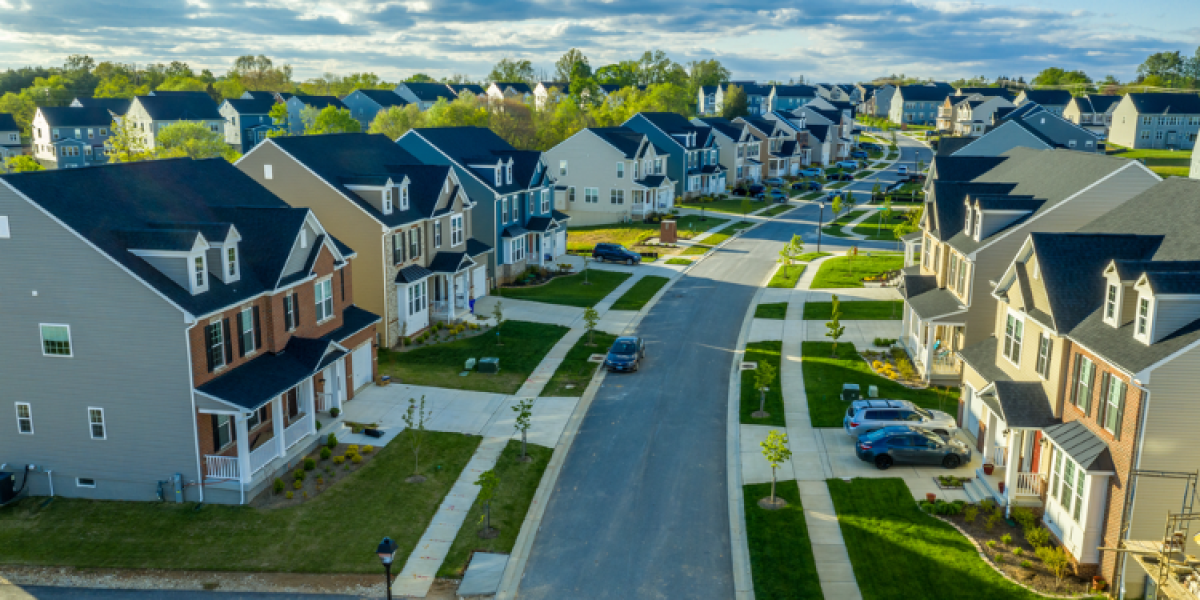
The current housing crisis is exacerbated by inflation, which, despite easing in sectors like food and energy, keeps driving up rental prices. Foreign investors are cautious or capitalizing on market attractiveness to execute their financial ventures. However, as locals and expatriates with modest incomes face an increasing cost of living burdened by continuous hikes in housing prices, governments are taking steps to regulate the market.
Are rising costs deterring foreign buyers?
Inflation hasn't spared the wallets of foreign buyers, who are closely watching the real estate market's fluctuations amid prolonged economic crises and political instability in several countries. China continues to battle its housing crisis, while Germany still faces a housing shortage—expected to rise from 700,000 in 2023 to 720,000 by 2025 and 830,000 by 2027. In major cities like Berlin, Frankfurt, Düsseldorf, and Cologne, hundreds of potential tenants queue to view properties, with prices in Berlin soaring by up to 40% since 2018. Nearly half of the residents are renters, including expatriates, affected by these increases that strain their finances. Other countries like Portugal, the UK, Australia, Japan, Canada, and Sweden are also grappling with housing crises.
In Australia, real estate prices are predicted to rise by 5% this year and next. Affordable rentals are scarce, making up just 5.9% of Sydney's rental properties. Housing remains a significant expense for expatriates. While wealthier expats might benefit from market fluctuations through lucrative investments, others experience a diminishing purchasing power similar to locals.
Spotlight on two popular expat hotspots facing housing crises:
United States
In the US, foreign buyers are hesitating. The world watches the leading global power, especially after a pivotal announcement by President Biden. On July 21, President Biden, seeking reelection, announced his withdrawal from the presidential campaign, typically a time when heavy investments slow down due to political instability. How will Biden's announcement affect the socio-economic climate? Observers are closely monitoring economic indicators. US housing prices remain stubbornly high, and inflation is not subsiding in the real estate sector.
On average, a property in the US costs $780,300 (median price: $475,000). There are significant price variations among cities: a 2024 report by Mercer consulting ranks New York and Los Angeles among the top 10 most expensive cities for expatriates worldwide, with five other cities in the top 20 (Honolulu, San Francisco, Miami, Boston, and Chicago), and Washington DC, Atlanta, and Seattle in the top 30. The US continues to have many of the most expensive cities for expatriates.
International buyers also curtailed their investments, purchasing only 57,300 houses between April 2023 and March 2024, a 36% drop from the previous period. Their investments amounted to $42 billion, down 21% from the previous period. Inflation, the strong dollar, and cumbersome administrative processes are hindering their real estate investments.
Spain
According to the Real Estate Registry Yearbook (Anuario Inmobiliario de los Registradores de la Propiedad), 2024 is poised to be a favorable year for foreign investment in Spain. Foreign transactions have steadily increased and were not impacted by COVID-19. Since 2013, foreign purchases have consistently accounted for more than 10% of all real estate transactions, reaching 15% in 2023 (up from 13.8% in 2022). Tourist-favored provinces like Catalonia, Andalusia, Alicante, Valencia, Santa Cruz de Tenerife, and Málaga attract nearly 40% of foreign real estate investments. While local authorities discuss the financial benefits, residents complain about unbearable cost-of-living increases. In the Canary Islands, frustration with foreign real estate purchases is as intense as that with mass tourism. Calls to abolish the Golden Visa, blamed for price hikes, are growing. The government, responding to the outcry, announced plans in April to "end" the Golden Visa, but experts suggest that this alone won't solve the housing crisis. Addressing the distorted rental market, saturated by tourist accommodations, is also necessary.
Could Barcelona's trial effort be futile?
On June 21, Barcelona made a drastic decision: to eliminate all tourist apartments within five years, prioritizing housing for locals. However, opinions are mixed, as the law allows a five-year extension for owners renovating their property. The measure concerns only 0.77% of Barcelona's housing, with luxury accommodations unaffordable for most residents. The mayor's proposal is unlikely to survive beyond his term.
Calls for addressing a broader range of housing—new rental contracts tailored for digital nomads—are growing. The surge in remote work has popularized a new type of rental agreement based on the duration of a digital nomad visa (generally one year). These properties now constitute 30 to 60% of Barcelona's rental market (depending on the area) and cater to well-paid expatriate workers, while local workers fear their proliferation. However, the mayor of Barcelona has refused to include these in his law.
Countries' strategies to limit rising rents
Countries worldwide are trying to find the right strategy to curb rent increases. In early July, while still a presidential candidate, Joe Biden urged Congress to pass a law preventing landlords from raising rents by more than 5% per year. Violators would lose their tax benefits. If passed, this law would affect some 20 million homes. Housing remains a critical issue in the presidential election campaign, with Biden forcefully advocating for an end to a crisis that disproportionately affects young people and low-income families.
In China, the number of vacant homes and abandoned real estate projects keeps growing. On May 17, the government announced a new action plan to revive the real estate sector, a cornerstone of its economy, accounting for 25% of China's GDP. Key measures include local authorities purchasing unsold homes to increase affordable housing stock.
Germany, Australia, and Canada are pushing to accelerate the construction of new affordable housing. Early this year, New South Wales, Australia's most populous state, announced a nearly $136 million aid plan for precarious tenants and plans to modernize its social housing.
Rent regulation in the Netherlands
Since July 1, 2024, the Netherlands has implemented a new law to better regulate rents for "intermediate" and social housing. Called the "Affordable Rent Act," it introduces a point system to classify homes and set a maximum rent based on room size, energy footprint, and the design of sanitary facilities and kitchens. A rental home can score up to 186 points, with a maximum monthly rent of €1,157.95. Homes valued above 186 points fall into the "free sector," where owners are free to set their prices.
Homes valued below 143 points are categorized as social housing, with a maximum rent of €880 per month. Tenants in social housing can request a rent review, regardless of how long they have been tenants. While the new law does not freeze prices, it caps their increase. Rents for homes valued above 143 points can rise by 5.5%, and those for social housing by 5.8%: only one increase per year is allowed. However, new rental housing constructions before 2028 can see rent increases of 10% above the annual allowed increase for 20 years.
Implementation details
The new law applies to all rental contracts signed since July 1. It is not retroactive in principle but may apply to some contracts signed before the reform. Landlords must inform prospective tenants of the home's value by 2025.
The maximum rental prices are available on the Huurcommissie (Rent Committee) website. The committee also handles disputes between tenants and landlords, for instance, in cases where a rent reduction request approved by the reform is denied by the landlord.



















